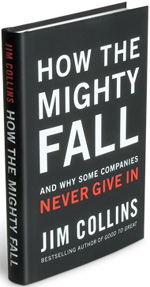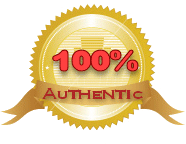How P&G Tripled Its Innovation Success Rate
 by Bruce Brown and Scott D. Anthony –
by Bruce Brown and Scott D. Anthony –
Back in 2000 the prospects for Procter & Gamble’s Tide, the biggest brand in the company’s fabric and household care division, seemed limited. The laundry detergent had been around for more than 50 years and still dominated its core markets, but it was no longer growing fast enough to support P&G’s needs. A decade later Tide’s revenues have nearly doubled, helping push annual division revenues from $12 billion to almost $24 billion. The brand is surging in emerging markets, and its iconic bull’s-eye logo is turning up on an array of new products and even new businesses, from instant clothes fresheners to neighborhood dry cleaners.
This isn’t accidental. It’s the result of a strategic effort by P&G over the past decade to systematize innovation and growth.
To understand P&G’s strategy, we need to go back more than a century to the sources of its inspiration—Thomas Edison and Henry Ford. In the 1870s Edison created the world’s first industrial research lab, Menlo Park, which gave rise to the technologies behind the modern electric-power and motion-picture industries. [Read more…]
What If You Work for a Bad Leader?
 by Michael Hyatt –
by Michael Hyatt –
About once a week I get an email from someone who wants to know how to work for a bad leader. Maybe their boss is a jerk. Maybe he is just incompetent. Regardless, they are not quite sure how to lead well in this kind of situation.
Though I eventually became a CEO, I spent most of my corporate years in middle management. I had my share of bad bosses. A few were jerks. I imagined myself quitting or at least giving them a good tongue-lashing. Others were incompetent. I wanted to pull my hair out or rat them out to their boss.
Fortunately, I didn’t do any of these things, though I was often tempted. And, I’m glad I didn’t. Each of these bad bosses served to make me a better leader. You can learn from positive role models. Sometimes you can learn even more from negative ones. [Read more…]
How to Build Confidence
 by Amy Gallo –
by Amy Gallo –
Very few people succeed in business without a degree of confidence. Yet everyone, from young people in their first real jobs to seasoned leaders in the upper ranks of organizations, have moments — or days, months, or even years — when they are unsure of their ability to tackle challenges. No one is immune to these bouts of insecurity at work, but they don’t have to hold you back.
What the Experts Say
“Confidence equals security equals positive emotion equals better performance,” says Tony Schwartz, the president and CEO of The Energy Project and the author of Be Excellent at Anything: The Four Keys to Transforming the Way We Work and Live. And yet he concedes that “insecurity plagues consciously or subconsciously every human being I’ve met.” Overcoming this self-doubt starts with honestly assessing your abilities (and your shortcomings) and then getting comfortable enough to capitalize on (and correct) them, adds Deborah H. Gruenfeld, the Moghadam Family Professor of Leadership and Organizational Behavior and Co-Director of the Executive Program for Women Leaders at Stanford Graduate School of Business. Here’s how to do that and get into the virtuous cycle that Schwartz describes. [Read more…]
How the Mighty Fall: A Primer on the Warning Signs
 By Jim Collins –
By Jim Collins –
The author of Good to Great on how to spot the subtle signs that your successful company is actually on course to sputter—and how to reverse the slide before it’s too late.
I pondered and puzzled and finally settled upon the question: Is America renewing its greatness, or is America dangerously on the cusp of falling from great to good? While I intended the question to be rhetorical (I believe America carries a responsibility to continuously renew itself, and it has met that responsibility throughout its history), the West Point gathering nonetheless erupted into an intense debate. Half of the participants argued that America stands as strong as ever, while the other half contended that America teeters on the edge of decline.
History shows, repeatedly, that the mighty can fall. The Egyptian Old Kingdom, the Chou Dynasty, the Hittite Empire—all fell. Athens fell. Rome fell. Even Britain, which stood a century before as a global superpower, saw its position erode. Is that the U.S.’s fate? Or will America always find a way to meet Lincoln’s challenge to be the last best hope of Earth?
At a break, the chief executive of one of America’s most successful companies pulled me aside. “I’ve been thinking about your question in the context of my company all morning,” he said. “We’ve had tremendous success in recent years, and I worry about that. So what I want to know is: How would you know?” [Read more…]
Nine Things Successful People Do Differently
 by Heidi Grant Halvorson –
by Heidi Grant Halvorson –
Why have you been so successful in reaching some of your goals, but not others? If you aren’t sure, you are far from alone in your confusion. It turns out that even brilliant, highly accomplished people are pretty lousy when it comes to understanding why they succeed or fail. The intuitive answer — that you are born predisposed to certain talents and lacking in others — is really just one small piece of the puzzle. In fact, decades of research on achievement suggests that successful people reach their goals not simply because of who they are, but more often because of what they do.
1. Get specific. When you set yourself a goal, try to be as specific as possible. “Lose 5 pounds” is a better goal than “lose some weight,” because it gives you a clear idea of what success looks like. Knowing exactly what you want to achieve keeps you motivated until you get there. Also, think about the specific actions that need to be taken to reach your goal. Just promising you’ll “eat less” or “sleep more” is too vague — be clear and precise. “I’ll be in bed by 10pm on weeknights” leaves no room for doubt about what you need to do, and whether or not you’ve actually done it. [Read more…]
Building Online Trust: 7 Tips for Being Authentic Online
 by Alice Hansen –
by Alice Hansen –
How can you make sure your brand inspires trust online? These tips will help your company feel more real—and build real relationships—through transparency and honesty.
A client working on her social media strategy asked me a couple of days ago for guidance on gauging the credibility of industry bloggers. She wants to cultivate mutually beneficial relationships with opinion-leading peers in her market space. Without actually meeting these people, how can one tell a legitimate, trusted expert source from a self-proclaimed one?
That question of whom to trust is the same for all of us when evaluating a business online. We look for basic data points to validate legitimacy. [Read more…]
